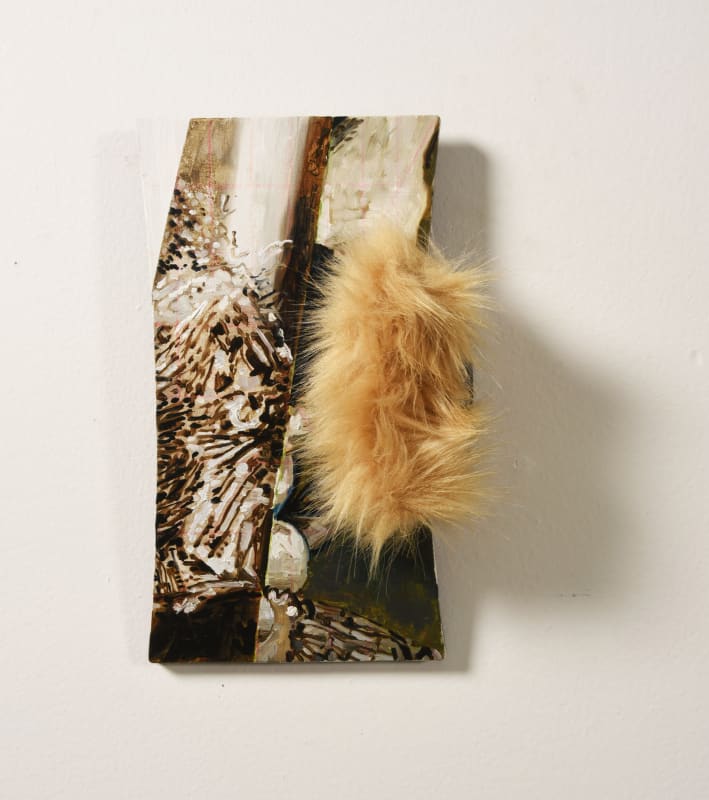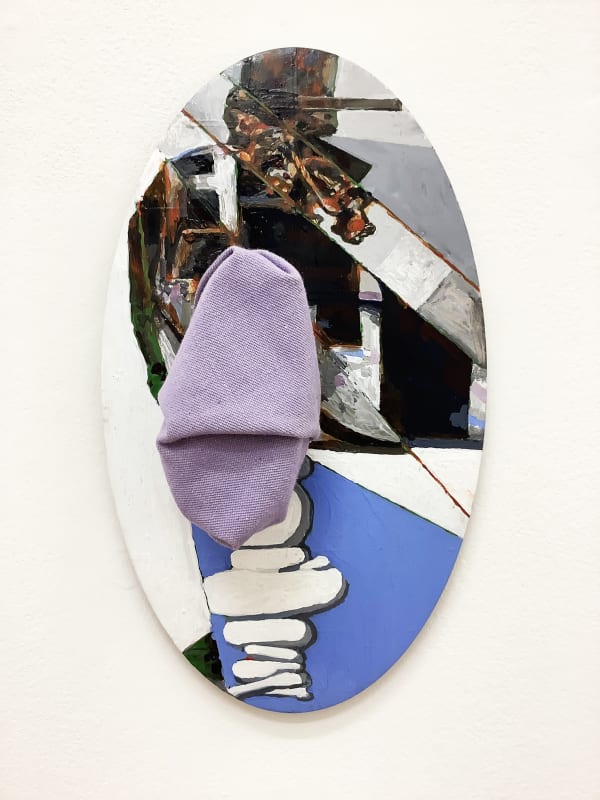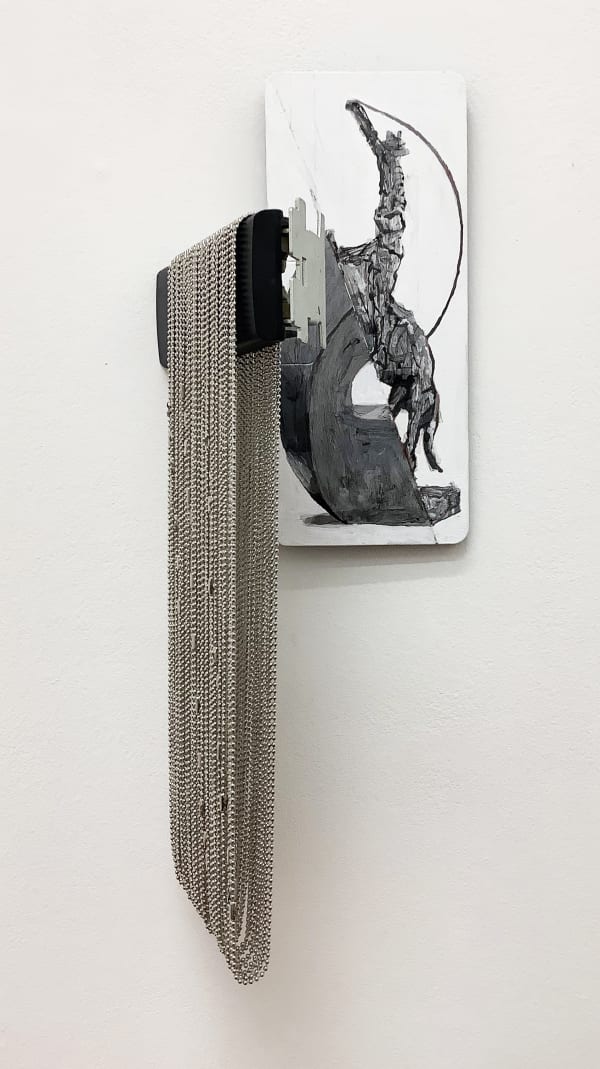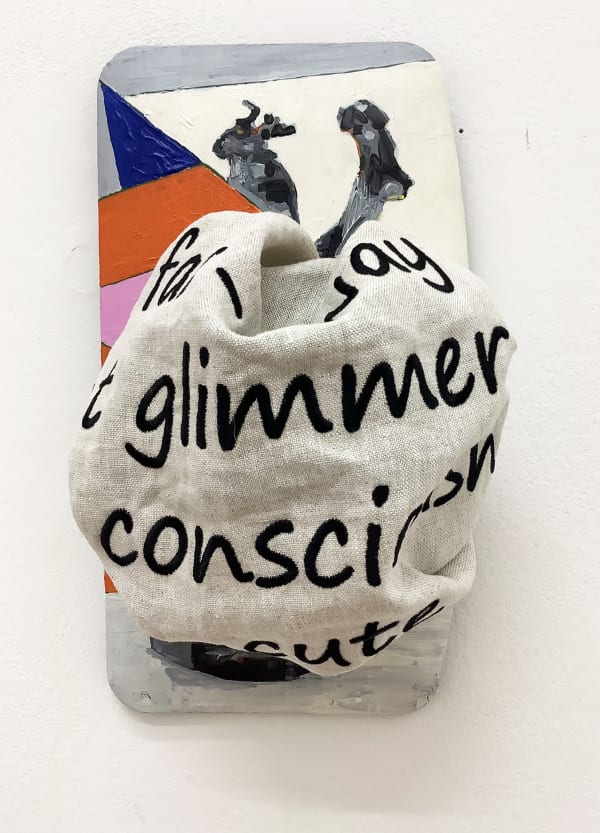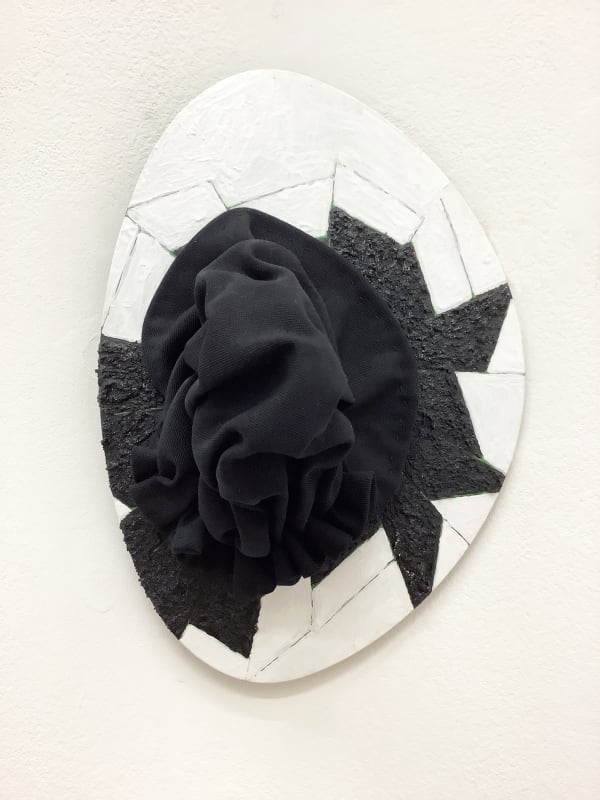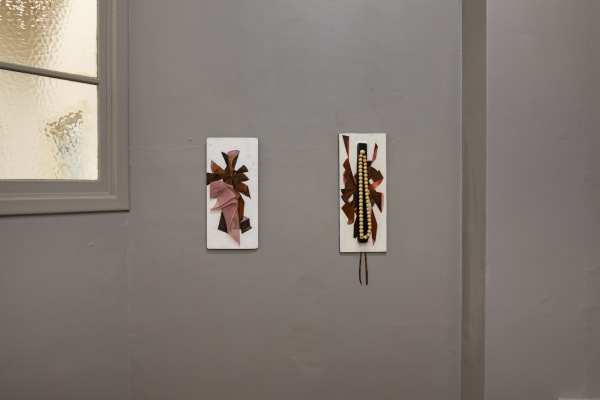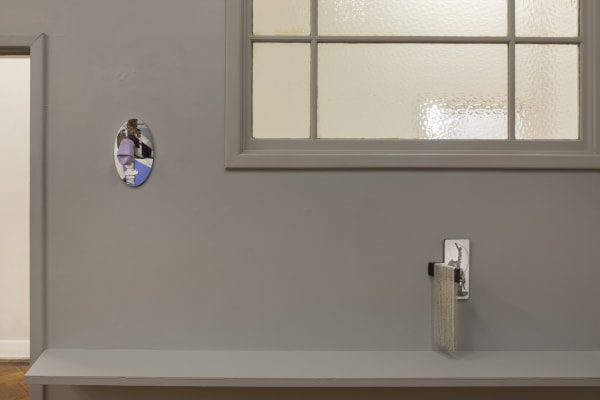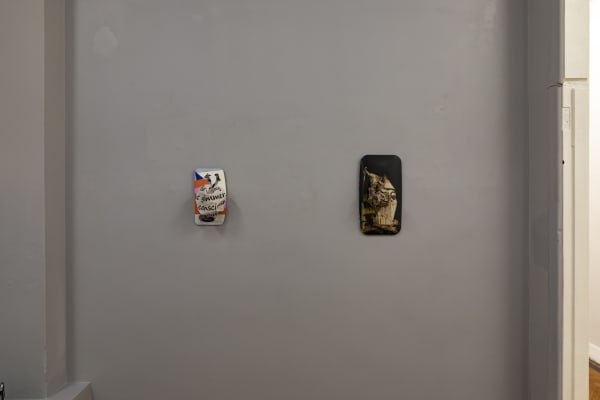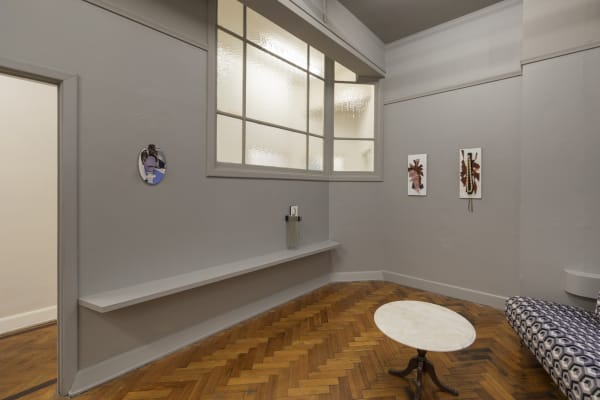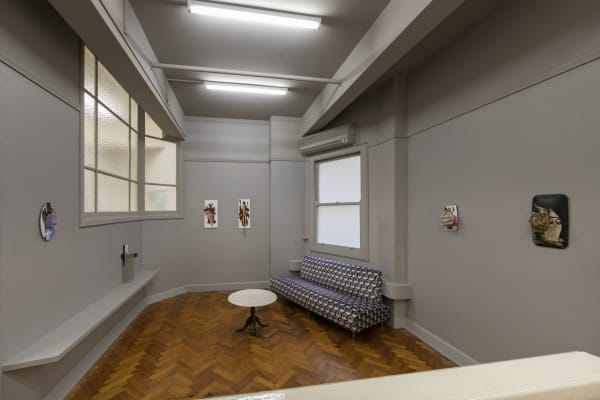Andrea Eckersley and Steven Rendall: the far-away faint glimmer of a consciousness more acute: Salon Projects
Andrea Eckersley and Steven Rendall's ongoing studio-based collaboration explores the material intersections of fashion and painting. Eckersley sympathetically adorns and embellishes the plastic supports (discarded plastic television and computer stands) painted with Rendall's fragmented images. The supports have protrusions and holes that interrupt the expected flat surface of a painting, thereby creating problems that painting alone is unable to adequately address. Eckersley creates garment-like coverings for these 'problems'; selecting highly apposite material arrays to adorn the paintings. In the artists' conversations the uncategorisable nature of these works is reminiscent of Robert Rauschenberg's Combines, yet more aligned with the scale of Richard Tuttle's Compartmentalization (2008).
The scavenged plastic bases are a substratum extracted from the flow of materials in our everyday lives. Repurposed, they become bases for new expressions, new forms, new possibilities. The work has a thrifting or gleaning-like quality; incorporating found materials, fabric interventions and garment construction. To work with the moulded plastic forms, Rendall fabricates collages of images taken from art auction catalogues, occult encyclopedias and horror film anthologies, amongst other sources, always diffracting and refracting these source materials through fragmentation, misprision, envy and critique. This process complicates the picture plane. The ensuing painted surfaces result in limitations, opportunities and comforts that are all compromised by the holes and protrusions of the plastic supports.
Each painted surface invites and invokes interventions for Eckersley's decorative methods in construction to perform. These paintings are bodies needing to be dressed, inviting further possibilities that are expressed via the extraordinarily subtle construction of sleeves, gathered cloaks or accents built out of necklace-like accumulations. Eckersley, like Tuttle, collects textiles which she manipulates and uses to 'respond' to the compositions, colours and textures of Rendall's paintings. Whilst it is evident that a garment may provide protection or be used as adornment to indicate status, garments may also be understood as social, affective and material expressions of subjectivity. These dressed and painted arrangements remind us that the 'meaning' of a garment, material, effect or force, cannot be determined in isolation of the assemblages in which it circulates, or more directly, the encounters in which it participates.
Henry James' short story, The Turn of the Screw, shared from one artist to another, supplies a further diffraction within the assemblage methods on display here. 'The far-away faint glimmer of a consciousness more acute' is a line where James describes how the governess identifies her own delayed dawn of an idea in the housekeeper's impassive misunderstanding. Like the faint glimmers in James' text, Rendall and Eckersley have discovered a generative opportunity to see these objects otherwise, pushing them into unfamiliar, uncomfortable and obscure aesthetic arrangements.
Dr Andrea Eckersley is a Senior Lecturer in the School of Fashion and Textiles at RMIT University, Melbourne
Dr Steven Rendall is a Lecturer in the School of Art at RMIT University, Melbourne
Steven Rendall is represented by Niagara Galleries, Melbourne.
